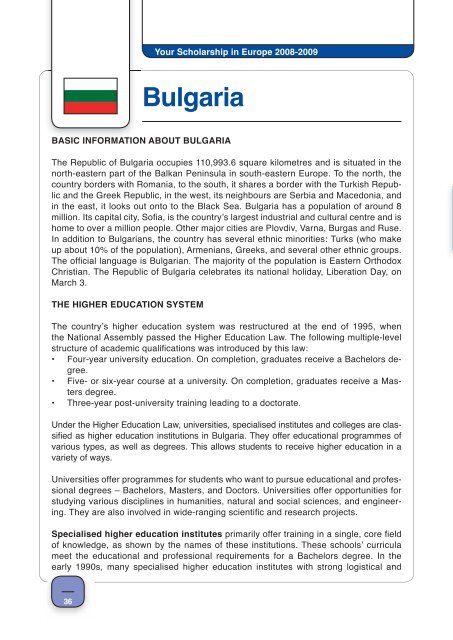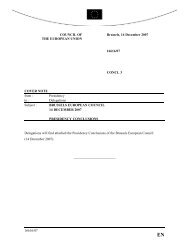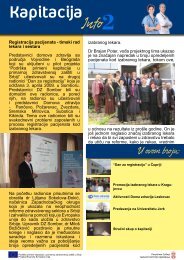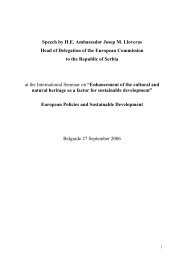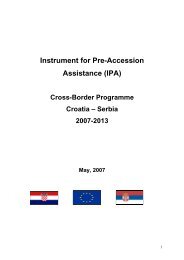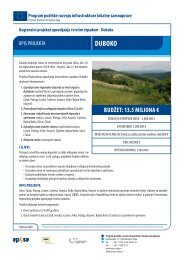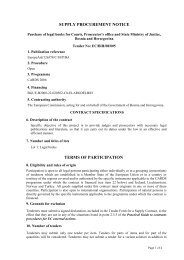YOUR SCHOLARSHIP IN EUROPE
YOUR SCHOLARSHIP IN EUROPE
YOUR SCHOLARSHIP IN EUROPE
Create successful ePaper yourself
Turn your PDF publications into a flip-book with our unique Google optimized e-Paper software.
36<br />
Your Scholarship in Europe 2008-2009<br />
Bulgaria<br />
BASIC <strong>IN</strong>FORMATION ABOUT BULGARIA<br />
The Republic of Bulgaria occupies 110,993.6 square kilometres and is situated in the<br />
north-eastern part of the Balkan Peninsula in south-eastern Europe. To the north, the<br />
country borders with Romania, to the south, it shares a border with the Turkish Republic<br />
and the Greek Republic, in the west, its neighbours are Serbia and Macedonia, and<br />
in the east, it looks out onto to the Black Sea. Bulgaria has a population of around 8<br />
million. Its capital city, Sofi a, is the country’s largest industrial and cultural centre and is<br />
home to over a million people. Other major cities are Plovdiv, Varna, Burgas and Ruse.<br />
In addition to Bulgarians, the country has several ethnic minorities: Turks (who make<br />
up about 10% of the population), Armenians, Greeks, and several other ethnic groups.<br />
The offi cial language is Bulgarian. The majority of the population is Eastern Orthodox<br />
Christian. The Republic of Bulgaria celebrates its national holiday, Liberation Day, on<br />
March 3.<br />
THE HIGHER EDUCATION SYSTEM<br />
The country’s higher education system was restructured at the end of 1995, when<br />
the National Assembly passed the Higher Education Law. The following multiple-level<br />
structure of academic qualifi cations was introduced by this law:<br />
• Four-year university education. On completion, graduates receive a Bachelors degree.<br />
• Five- or six-year course at a university. On completion, graduates receive a Masters<br />
degree.<br />
• Three-year post-university training leading to a doctorate.<br />
Under the Higher Education Law, universities, specialised institutes and colleges are classifi<br />
ed as higher education institutions in Bulgaria. They offer educational programmes of<br />
various types, as well as degrees. This allows students to receive higher education in a<br />
variety of ways.<br />
Universities offer programmes for students who want to pursue educational and professional<br />
degrees – Bachelors, Masters, and Doctors. Universities offer opportunities for<br />
studying various disciplines in humanities, natural and social sciences, and engineering.<br />
They are also involved in wide-ranging scientifi c and research projects.<br />
Specialised higher education institutes primarily offer training in a single, core fi eld<br />
of knowledge, as shown by the names of these institutions. These schools’ curricula<br />
meet the educational and professional requirements for a Bachelors degree. In the<br />
early 1990s, many specialised higher education institutes with strong logistical and


